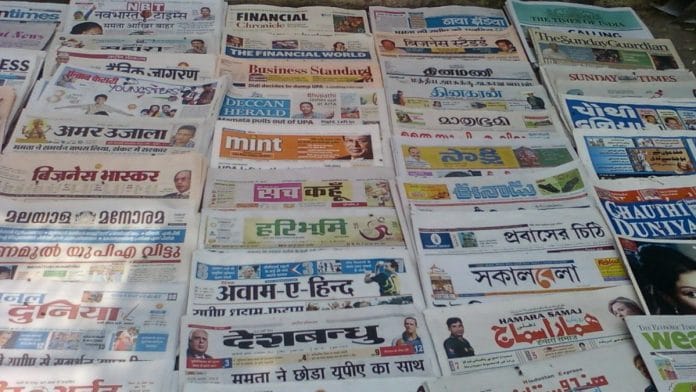The court has also issued notices to Facebook India, YouTube and Google India to pay the fine. Al Jazeera and Buzzfeed may be on the list too.
New Delhi: Eleven prominent media houses have together paid a total of Rs 1.1 crore as fine for making public the identity of the minor Bakerwal girl in Kathua who was allegedly gang raped and killed in January.
A bench headed by the acting chief justice of the Delhi High Court, Justice Gita Mittal, had imposed a fine of Rs 10 lakh each on a dozen media houses: The Times of India, Hindustan Times, The Indian Express, The Hindu, NDTV, Pioneer, Republic TV, Deccan Chronicle, The Week, The Statesman, India TV and Firstpost.
Deccan Chronicle, which is currently facing a liquidity crisis, is yet to deposit the fine. The court has now sent the newspaper a notice through the resolution professional appointed by the National Company Law Tribunal.
The high court has deposited the fine collected to the Jammu and Kashmir State Legal Services Authority for disbursement to victims of sexual violence, and to their families if the violence proves fatal.
All media houses had unconditionally apologised.
Initially, Mittal had proposed a fine of Rs 25 lakh but the lawyers of some digital media houses pointed out that they were not in a position to bear the heavy sum.
On 18 May, the court had also appointed senior advocate Arvind Nigam as amicus curiae to assist the court. Apart from the media houses the court had identified, Nigam combed the internet to identify a few more. The high court is likely to include foreign media houses Al Jazeera and Buzzfeed in the list as well since their local portals are incorporated as Indian companies.
The court had also issued notice to Facebook India, YouTube and Google India. The high court registry said that neither Facebook nor Google had paid the fine.
“The high court had essentially asked them to pay first and then contest the law. It shows a presumptive finding on their conduct which is impermissible in law,” said Apar Gupta, a media rights and free speech lawyer.
“As far as intermediaries such as Google and Facebook are concerned, the law distinguishes them from media channels and newspapers. Since they do not have authorship or editorial control over the content, they cannot be held liable,” Gupta said.
Why the punishment
Under the Indian Penal Code (IPC), printing or publishing the name, or any other detail that discloses the identity, of a victim of rape is prohibited. However, the prohibition can be waived by the victim, or, where the victim is dead, by the family, to the specific authorities.
In this case, however, since the rape victim was an eight-year-old, another law came into play. The Protection of Children from Sexual Offences Act 2012 (POCSO) completely bars media houses from disclosing the name, address, photograph, family details, school, neighbourhood or any other particulars that may lead to the disclosure of a victim’s identity.
ThePrint has learnt that while none of the media houses could prove that they had the consent of the eight-year-old’s parents to claim exemption under the IPC, they did not contest the POCSO law that forbids using the name of the minor victim.
Under the IPC, the crime is punishable with imprisonment of up to two years, while the POCSO Act sets out a jail term of six months to one year. So far, the court has not ruled out imprisonment.






